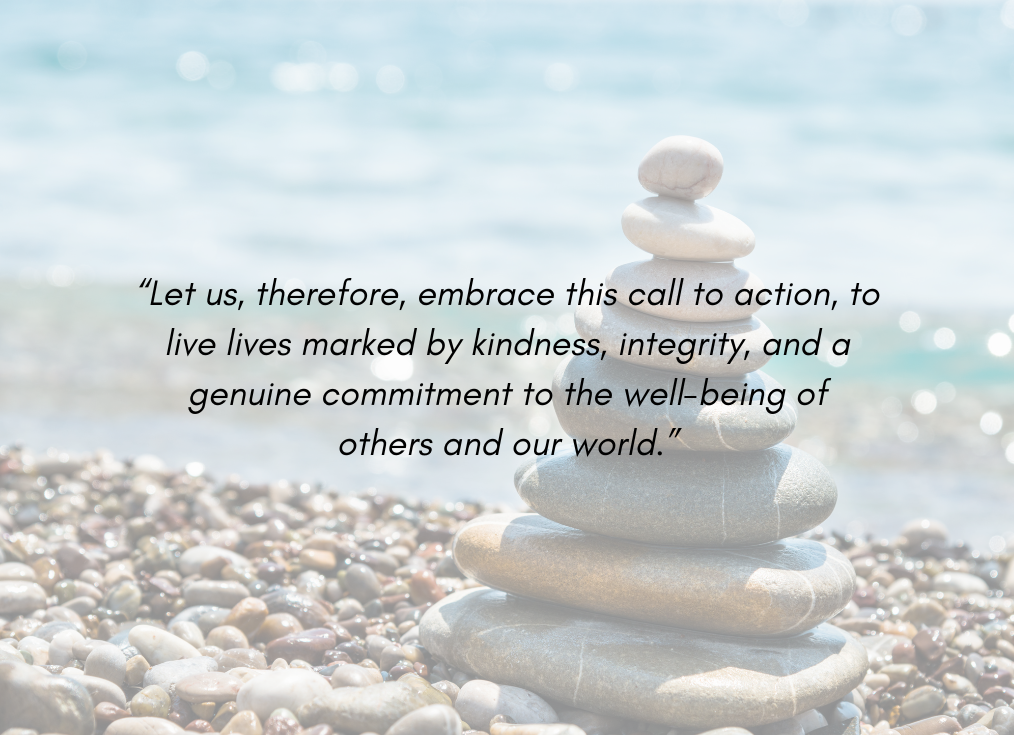The Path of Devotion

March 29, 2024 / 19 Adar II 5784
In this week’s Torah portion, Tzav, we delve deep into the intricate world of korbanot, or sacrificial offerings, a central aspect of the spiritual life in the Tabernacle and later Temple period. These offerings range from the olah (burnt offering) that symbolizes complete dedication to Gd, to the asham (guilt offering) and chatat (sin offering) that embody repentance and atonement for wrongdoing, and the zevach sh’lamim (peace offering), expressing gratitude and seeking harmony. Each korban, with its unique purpose and procedure, serves as a tangible expression of our ancestors multifaceted relationship with the Divine, encompassing their aspirations, regrets, and desires for peace and reconciliation.
Yet, in the words of the prophet Hosea, “For I desire goodness, not sacrifice; Devotion to Gd, rather than burnt offerings” (Hosea 6:6), we are reminded that the essence of our relationship with Gd today transcends the physical acts of sacrifices. Hosea challenges us to see beyond the rituals, to understand that what Gd truly desires is the purity of our hearts, our commitment to justice, kindness, and our unwavering devotion to righteousness. This profound statement suggests that the ultimate sacrifice is not on the alter, but within us every day; it is the sacrifice of the easy for the good.
…
Rabbi Joseph B. Soloveitchik, a towering figure in modern Jewish thought, echoed this sentiment when he spoke of religious experience as an encounter that demands the totality of one’s being. In “The Lonely Man of Faith” Soloveitchik taught that a person’s spiritual loneliness can only be overcome by becoming part of the “covenantal community,” which is based on a relationship with Gd and expressed in terms of sacrificial behavior. This delicate balance reflects our struggle to navigate between the “right way” and the “easy way,” between our instinct for immediate gratification and the harder path of righteousness and moral integrity.
Unlike Robert Frost who takes the road less traveled, which “made all the difference” to him, not all of us can follow “The Road Not Taken” alone. When we find ourselves standing at our personal fork in the road, where one path is clear and well-trodden, promising ease and comfort; for us to even consider the other more rugged and obscured path, requiring additional effort and sacrifice to pursue, we recognize in that moment that being with others would provide us the necessary confidence and support to move forward.
In our lives, filled with choices and challenges, we are continually faced with our own “korbanot” – moments when we must decide between self-interest and the greater good. Hosea’s call to prioritize goodness and devotion over ritual sacrifice invites us to reconsider our daily decisions, to choose paths that may not be easy, fast, or cheap, but that lead to a more righteous, considerate, and meaningful life. And to have others, whom we trust and who support our values and reinforce our customs and traditions around us, provides us with the additional courage and confidence we need to make these difficult decisions.
Let us, therefore, embrace this call to action, to live lives marked by kindness, integrity, and a genuine commitment to the well-being of others and our world. In doing so, we honor the spirit of the korbanot, transforming our very lives into a sacred offering pleasing to Gd. Because we are…
Shabbat Shalom.

